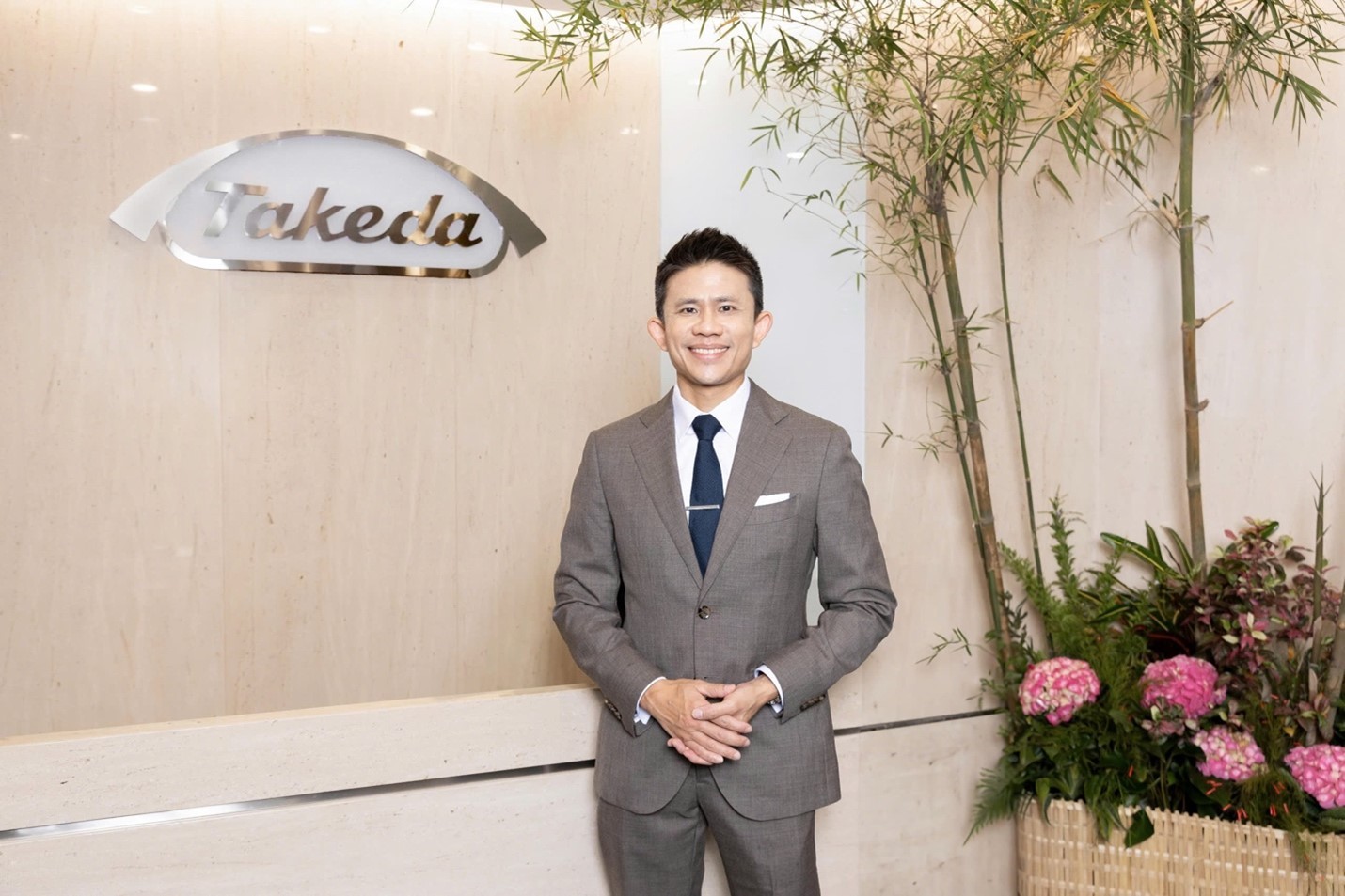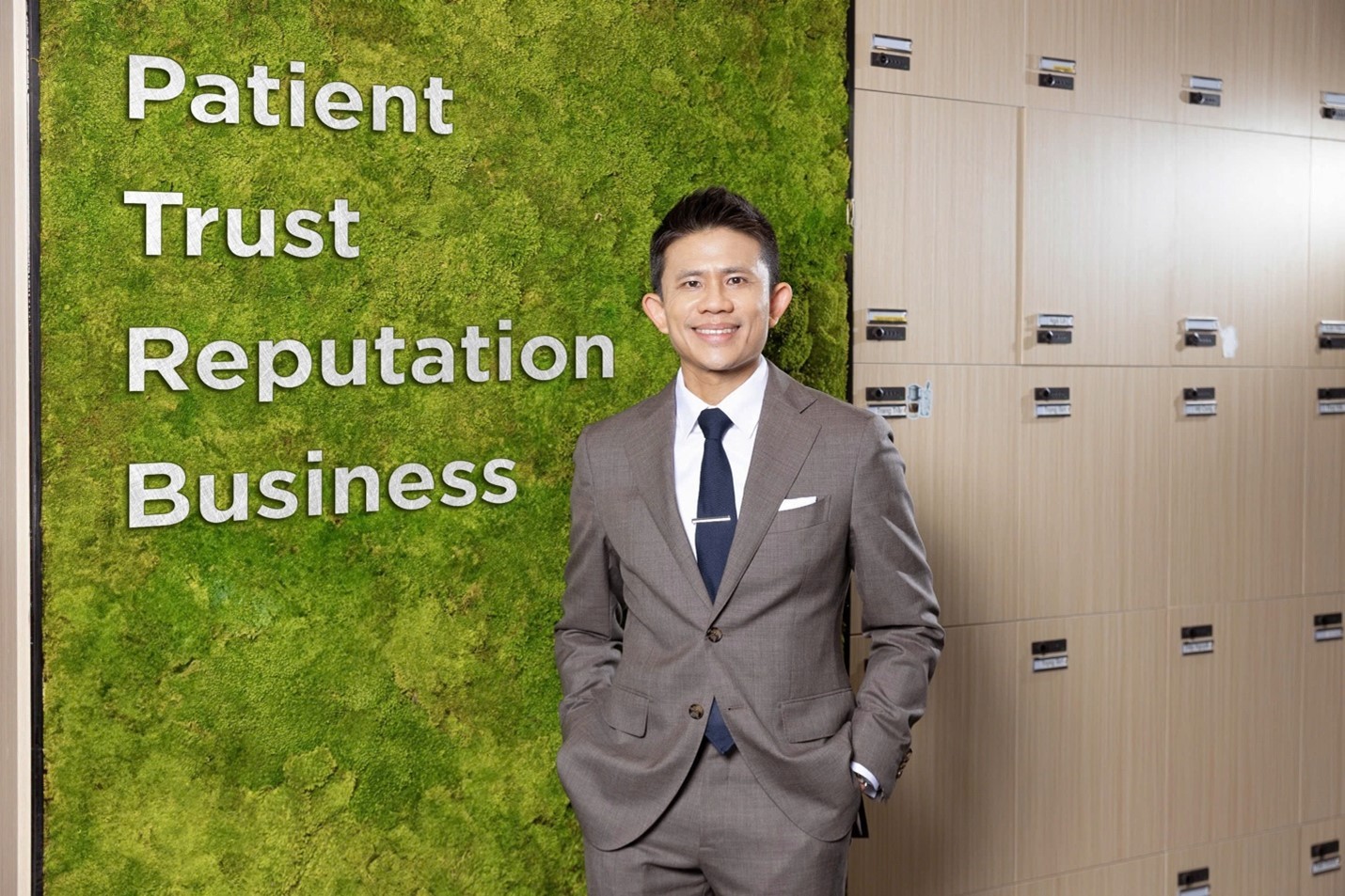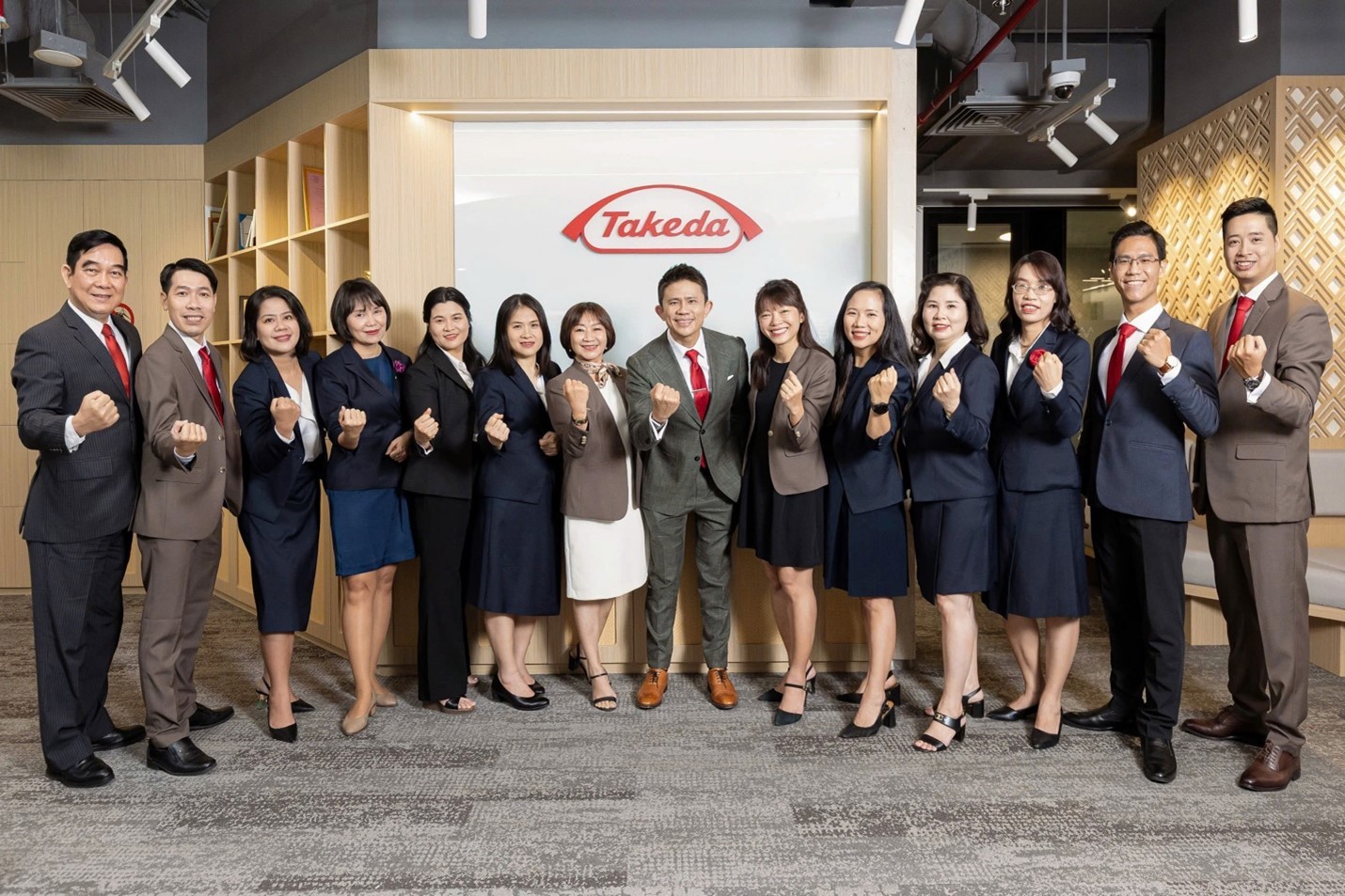Takeda Vietnam has announced the appointment of its General Manager, Benjamin Ping, a pharmaceutical executive with more than 20 years of experience working in cities including Singapore, Shanghai, Hong Kong, and most recently, Dubai.
As Vietnam enters a new phase of development, Benjamin says he is committed to supporting the government’s healthcare goals by bringing Takeda’s portfolio of life-transforming medicines and vaccines to Vietnamese population.
His leadership approach focuses on innovation and collaboration, with a vision of ensuring Takeda has a lasting, positive impact on the country’s healthcare landscape. In a recent interview with Tuoi Tre News, Benjamin shared his mission and vision for Vietnam.
|
|
| Benjamin Ping shares his impression on bamboo which reflects resilience, strength, and adaptability. |
Question 1: Welcome to Vietnam in your new role as General Manager of Takeda Vietnam. What motivated you to come here, and what are your first impressions?
Answer: From a personal perspective, having visited Vietnam many times before, the culture, people, and food are things I can relate to. In addition, as a Singaporean who has been based overseas for the past three years, returning to Southeast Asia feels like coming home.
From a professional perspective, Vietnam’s economic development and growth have been remarkable. The opportunity to be part of this momentum and contribute by bringing Takeda’s portfolio of innovative medicines and vaccines to the population was very attractive.
As I learned more about Vietnam’s culture, the symbolism of the bamboo tree really resonated with me. It reflects resilience, strength, and adaptability, all of which are qualities that I see in both the Vietnamese spirit and our corporate philosophy. To me, the roots represent our strong values, the trunk represents our people, and the bending branches reflect our strategic flexibility. This metaphor captures how I envision leading Takeda Vietnam. We must stay grounded in our mission while adapting to evolving healthcare needs.
|
|
| Benjamin Ping has been appointed as General Manager of Takeda Vietnam Pharmaceutical Company Limited. |
Question 2: What does Takeda's corporate philosophy mean to you?
Answer: Takeda has a strong foundation for delivering long-term value, and our corporate philosophy has been passed down through generations. Our journey began in 1781 with the sale of traditional Japanese and Chinese medicines in Japan, guided by the principle of Sanpo Yoshi, which means “good for the seller, good for the buyer, and good for society.”
This principle, practiced by a prominent group of Japanese merchants, has remained central to how we operate. Successive CEOs have carried it forward, each interpreting it in their own way while staying true to its essence.
Today, our corporate philosophy outlines our purpose (why we exist), our vision (where we’re going), and our values (how we get there). Our three core imperatives – Patient, People, and Planet – bring this philosophy to life and guide how we invest to deliver on our mission.
And we know we can’t do it alone. That’s why we work closely with stakeholders in Vietnam to bring these imperatives to life, staying true to the Sanpo Yoshi principle by delivering value to Vietnam, its people, and Takeda.
Question 3: How does Takeda’s global philosophy shape your commitment to patients, and how is it applied in Vietnam?
Answer: Takeda's global corporate philosophy is centered on our commitment to delivering life-transforming treatments to patients. We prioritize patient-centric innovation, ensuring that our drug and vaccine development is aligned with the needs of patients.
In Vietnam, we tailor this philosophy to address local health challenges by enhancing access to our innovative therapies in rare diseases, oncology, neuroscience, plasma-derived therapies, and vaccines. For instance, the introduction of the dengue vaccine in the country reflects our commitment to addressing vector-borne diseases that are worsening due to climate change.
Another important focus for Takeda is ensuring patients' access to healthcare, medicines, and vaccines. This is why we’ve introduced a tiered pricing framework, which adjusts prices based on a country’s level of economic development and the maturity of its healthcare system.
Question 4: Takeda places significant emphasis on people within its corporate philosophy. How does this translate into strategies for employee development and diversity in Vietnam?
Answer: At Takeda, we believe our people are our greatest asset, and our corporate philosophy reflects this through a commitment to fostering a culture of lifelong learning, diversity, equity, and inclusion (DE&I).
Takeda employees live our values every day, guided by Takeda-ism, which includes Integrity, Fairness, Honesty, and Perseverance, with Integrity at the core. These values are brought to life through the principle of Patient–Trust–Reputation–Business, in that order.
To me, the phrase “in that order" is a very powerful reflection of how we make decisions at Takeda. I often remind the team of this. Every employee, no matter their role in the organization, has a responsibility to uphold the highest ethical standards at all times, because everything we do impacts the most vital aspect of people’s health.
|
|
| Takeda staff embrace values guided by Takeda-ism, which includes Integrity, Fairness, Honesty, and Perseverance, with Integrity at the core. |
Question 5: Planet is also a key pillar of Takeda's corporate philosophy. Can you elaborate on Takeda's sustainability goals and how they are adapted to the Vietnamese context?
Answer: Takeda's commitment to environmental sustainability is reflected in our ambitious goals: achieving net-zero greenhouse gas emissions in our operations by 2035, and across our value chain by 2040.
We integrate environmental considerations into product development and operations through initiatives like our Sustainability by Design program. For example, we’ve committed to expanding our Plasma-Derived Therapies (PDT) business while reducing its environmental footprint. Achievements include opening a zero-emissions BioLife donation center in Linz, Austria, and making significant reductions in emissions, water consumption, and energy use across our U.S. BioLife centers.
In Vietnam, we are aligning local strategies with these global goals by identifying opportunities to reduce our environmental footprint across the country’s value chain. The rollout of the dengue vaccine is also a reflection of how we’re addressing health issues linked to climate change.
Our office in Vietnam was specifically selected because it meets both LEED (Leadership in Energy and Environmental Design) and WELL (supporting health and well-being) certification standards.
Question 6: We hear a lot about Takeda's digital dexterity. Could you explain this concept and how Takeda leverages data, digital tools, and technology to enhance operations and patient engagement globally – and specifically in Vietnam?
Answer: Takeda is at the forefront of using data, digital tools, and technology to drive innovation and improve patient outcomes. Globally, we are applying these capabilities in areas such as AI-driven drug discovery, virtual clinical trials, and digital patient support programs. These help increase accessibility and diversity in clinical research while also optimizing our operations.
In Vietnam, we are using digital tools to improve patient engagement and support. For example, we are exploring technologies that help patients access personalized educational resources and manage their health more effectively.
We are also adopting tools to help our employees work more efficiently and productively, allowing them to focus more on meaningful, value-added work that ultimately benefits patients.
* Content provided by Takeda Pharmaceutical Company Limited, Vietnam. C-ANPROM/VN/NON/0011/Mar 2025.





















































